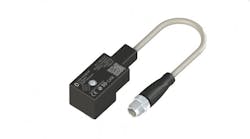The increasing complexity of today's hydraulic equipment means there's a lot to know about proactive maintenance if optimum reliability is to be achieved.
And it's my observation that this increasingly specialized knowledge is grossly undervalued in the marketplace. But despite my loud and regular protests to the contrary, the 'Holy Grail' of all hydraulics skills is and always has been: troubleshooting.
Yup, whether you and I like it or not, the hot-shot troubleshooter, the man who can cast his eye over a hydraulic system and quickly zero-in on the fault without breaking sweat, is 'Top-Gun' in the hydraulics world.
He's a soldier of fortune. Admired by some; envied by many.
Given troubleshooting expertise is such a valuable and sought after skill, have you ever wondered why there's so many millwrights, mechanics, technicians and engineers out there equipped with nothing more than a trial and error, hit and miss, pluck and chuck approach to troubleshooting?
Beginning of last year one of my Hydraulics Pro Club members engaged me in a conversation about the skill of troubleshooting (it IS a skill all on its own). And to cut a long story short, his view was that most mechanics, technicians and engineers will never become competent troubleshooters, no matter how much effort is put into them, because they lack the necessary talent.
In other words, he was suggesting troubleshooting can not be taught; or if it can, only to those candidates with the right aptitude.
I didn't automatically agree with this assessment. That troubleshooting ability is some kind of black art which can only be mastered by those gifted with special powers. And it's a view I'd come across before. But since it wasn't an issue I'd stopped and given a lot of thought to, I went away and pondered it at length.
After spending some time considering my own experience and that of the many technicians I've worked with, supervised and trained over the years, I came to the conclusion that troubleshooting is NOT any kind of black art at all.
It is indeed a learned skill.
And if something can be learned, it can be taught.
Furthermore, I concluded that learning how to troubleshoot effectively is NOT like learning math, where you need mathematical aptitude, or learning music where you need musical talent. In other words, I'm convinced NO mystical powers are required to become an expert troubleshooter.
Bottom line: troubleshooting is a skill anyone can learn. Anyone who wants to that is.
But what does it mean, to be an expert troubleshooter? Contrary to what many believe, it has almost nothing to do with the ability to read a hydraulic schematic.
While the ability to read schematics is usually helpful in a hydraulic troubleshooting situation, it's a secondary skill. I've been able to read a schematic for 25 years or more, but it hasn't stopped me from making more than a few troubleshooting mistakes during that time. And when I'm troubleshooting something other than a hydraulic system, the ability to read a schematic is no help to me at all.
And this is why the troubleshooting process and procedures I explain in my new troubleshooting handbook can be applied equally effectively to ANY system. Not just a hydraulic system. Because troubleshooting is troubleshooting.
For example, last year my wife, Jay started to feel ill after meals. She hadn't long recovered from an illness that required surgery. So she wasn't at all keen to start seeing doctors again. And as a result she was putting up with the discomfort.
I started paying attention to exactly what we ate at meal times and how she felt afterwards. After a couple of days of careful observation it occurred to me that she may have developed gluten intolerance. I shared my observation with Jay, and she agreed, as a test, to eliminate all wheat products from her diet. And the result was as immediate as it was remarkable. 15 months later, she still hasn't been 'medically' diagnosed as gluten intolerant, but it's hardly necessary. Because if she inadvertently eats anything containing even a trace of gluten, it makes her feel sick.
Clearly, I'm not a doctor. But the process I went through to troubleshoot my wife's condition, is the same process I use when troubleshooting a hydraulic system. And note that my ability to read a hydraulic schematic was NOT the key. My understanding of the troubleshooting PROCESS was.
And while on the subject of doctors, if you need further evidence that system knowledge in and of itself is NOT the key to effective troubleshooting, consider the medical profession. The vast majority of doctors are highly qualified. And yet hardly a day goes by when you don't read or hear about a misdiagnosis that had serious, even fatal consequences for the patient. Doctors use the term: misdiagnosis. I call it what it is: a troubleshooting mistake.
Fortunately, unlike doctors, we in the hydraulics biz don't 'bury' our troubleshooting mistakes. Still, there's plenty of room for improvement.
P.S. Troubleshooting mistakes are usually expensive, but so too are the maintenance mistakes I outline in "Six Costly Mistakes Most Hydraulics Users Make... And How You Can Avoid Them!" available for FREE download here.
Continue Reading
Continue Reading
BOOK 2, CHAPTER 12: Fluid Motor Circuits
March 18, 2009
Motor leakage variations
Oct. 18, 2006
Sponsored Recommendations
Sponsored Recommendations
All-In-One DC-UPS Power Solutions
March 13, 2024
Motor Disconnect Switches
March 13, 2024
Industrial Straight-Through Cable Gland
March 13, 2024
